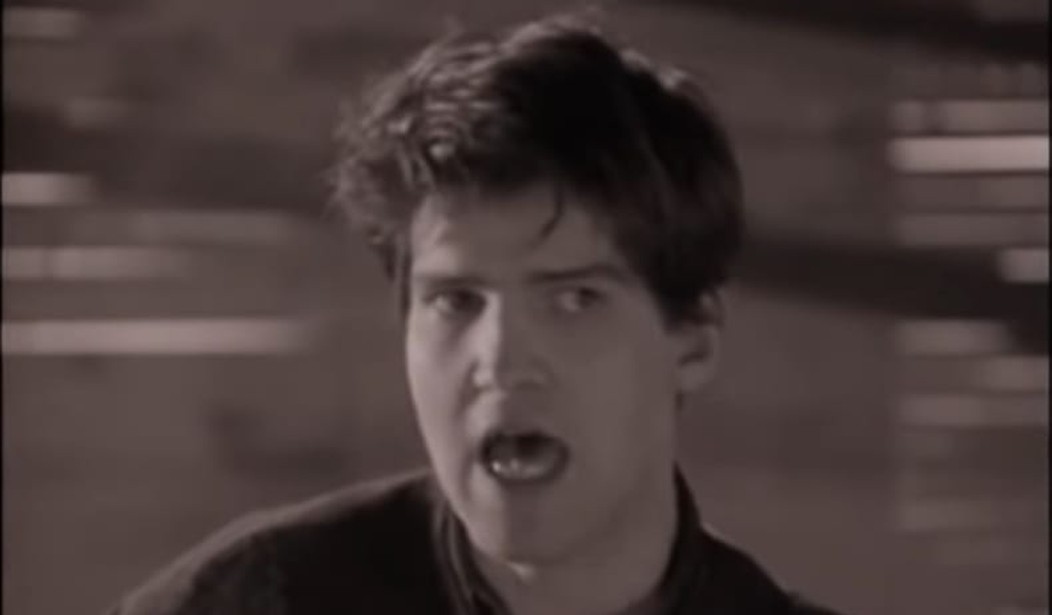Essential Listening
When I talked to readers about jumping on the Twitch bandwagon a few months ago, I explained that one of the defining moments of the experience, at least for me in this COVID year (which has been longer than a year, of course), was getting reacquainted with bands I loved and listened to in the 1980s. That they hadn’t all broken up and long ago been laid to rest in the boneyard of rock ‘n roll, like some relic of times past.
The band I mentioned in the piece was Orchestral Maneuvers in the Dark. But there are other bands and artists whose music isn’t dead and buried — with influence that’s wide-ranging and important — who still make new (and good) music. As we make our way along this journey rediscovering the music of our youth and young adulthood, there will be other bands that crop up. And one of the most crucial of those artists, I think, is Lloyd Cole.
The fact is that his career didn’t begin and end in the ’80s. He put out a new record just over two years ago.
So, naturally, it’s going to take more than one article to do proper justice to his oeuvre and his musical story.
That story starts in 1982, with a quirk, New Wave pop band made up of members from England and Scotland called Lloyd Cole and the Commotions. It’s a mouthful of a name; not nearly as snappy as Duran Duran or Wham! or the Thompson Twins. It kinda sounds like a jazz or R&B combo out of St. Louis or Chicago in the 1950s or ’60s And I have a feeling that’s no accident, to bring those connotations (including America) to mind. These were some very serious young men. But, as nice as the alliteration is, It just wasn’t, shall we say, “play it, say it” friendly. And that’s before you even get to the music.
The other problem, if it can be seen as a problem, is that they weren’t flashy or ostentatious. They didn’t run around talking about political issues like vegetarianism or whatever in Smash Hits music magazine (which was called Star Hits in the U.S.) — coincidentally, the publication where Neil Tennant, the singer for the Pet Shop Boys, once worked as a writer and editor.
The Commotions also didn’t deign to pick fights with other bands, just to get press clippings (ahem, you know who I mean here). They just took care of business. Very un-pop star-like — in the ’80s, at least.
Here’s a sampling of the band’s music, the place in the Lloyd Cole timeline where anyone hoping to appreciate what he’s done up to today needs to start (whether Lloyd himself likes it or not).
Like the Beatles, the band really only had five years as a going concern (a comparison Lloyd would like, I reckon; there’s a reference to the Fab Four in the first song, below). They put out three studio albums, the first one in 1984 on Polydor/Geffen/Capitol Records. It reached number 13 in on the U.K. Albums chart, according to the Wikipedia for the album.
Here’s the title track to that debut, called Rattlesnakes, and the next two songs were the other singles culled from the record.
“Perfect Skin”
Lloyd Cole And The Commotions – Forest Fire 12" and NME press ad from 1984. A lot of 12"s were waste of money, but this was a beaut #vinylcollection #indie #LloydCole pic.twitter.com/I5ARgfnOF4
— Richard Balls (@RichardBalls) March 11, 2019
“Forest Fire”
I once heard that this was Lloyd’s fave song on the album (or, perhaps, it was the song he wished more people had noticed from it.)
“Down on Mission Street”
Easy Pieces (1985) bettered the first record, reaching number 5 on the U.K. Albums chart. The first two singles, “Brand New Friend” and the next song, broke the U.K. top 20 (at numbers 19 and 17, respectively). .Still not a peep from America.
An essential song: “Lost Weekend,” in which you’ll hear the album title (just rearranged).
Now playing Lloyd Cole and The Commotions – Mainstream#5albums87 pic.twitter.com/EKJCUuPyKy
— Sandy Wishart (@_sandywishart) May 20, 2021
It wasn’t until the release of their third, studio album, Mainstream (1987), that the band had any sort of success in the U.S. — and even then, it wasn’t the kind that breaks you into (ironically) the mainstream of radio airplay.
To introduce “From The Hip,” here’s a humorous (if brief) 1988, local TV interview and appearance in Glasgow:
“Jennifer, She Said,” another single, happens to be my favorite song from the band.
“My Bag,” the record’s opening track, reached number 13 on the Billboard modern rock charts through heavy rotation on college radio and other friendly stations in major, coastal cities; it also had some sway on the industry publication’s Dance charts, slipping into the top 50 (48).But it had two things working against it from the get-go; Mainstream was panned by critics. Plus, sales didn’t reach 100,000 copies — which the album’s Wikipedia notes was a first for a Commotions LP. It’s worth mentioning that a Billboard Magazine columnist speculated that a gap between its release overseas and stateside led to a bloodletting of sales to import labels. Geffen/Capitol had seen enough. The Commotions were (pardon the pun) cut down in 1989.
It was at this point that Lloyd Cole struck out on his own at the end of the decade. Meanwhile, to finish the band’s commitment, the label slapped together a compilation record of the singles, with a truly iconic cover:
Ca me rappelle ce best of de Lloyd Cole & The Commotions ! pic.twitter.com/DwmLijeaO5
— Sébastien Pélegrin (@seb_gordon) May 25, 2021
I’ll have to wrap things up here, but there is much more to tell in this story…never fear.
Essential Listening verdict: The reasons to listen to Lloyd Cole are as various as his musical moods. To paraphrase something people often say about weather in volatile climates: if you don’t like what you’re listening to, wait five minutes.
A future column will include an update on my new podcast, “Lower Culture With Becca Lower,” which (rest assured) will start very soon! You can also expect to read something sport-related here. And keep an eye out for a continuation of the conversation — started in a primer article in late April — about independent films and their directors.
Thank you, again, for reading! And tell your friends how much you love RedState’s (and Townhall Media’s) VIP content. It matters.
Related:
Higher Culture: Mining the Eighties (and Nineties) for ‘New’ Music














